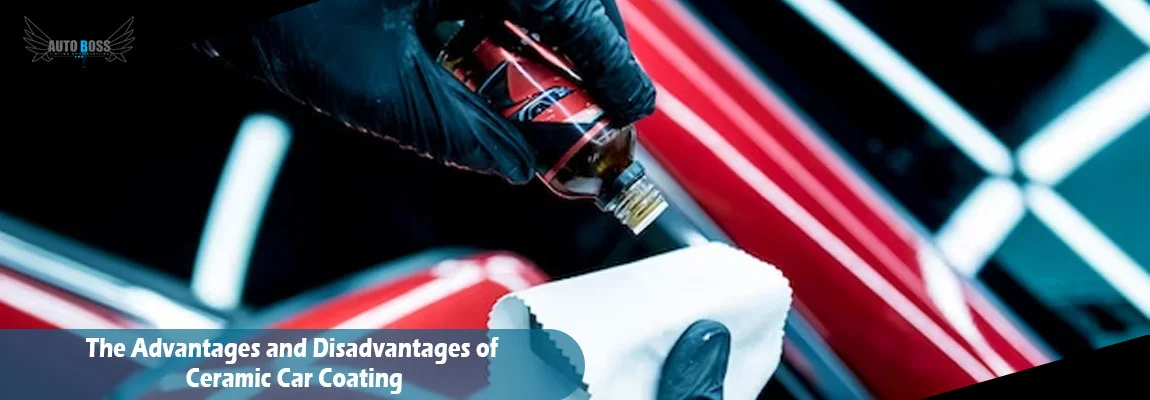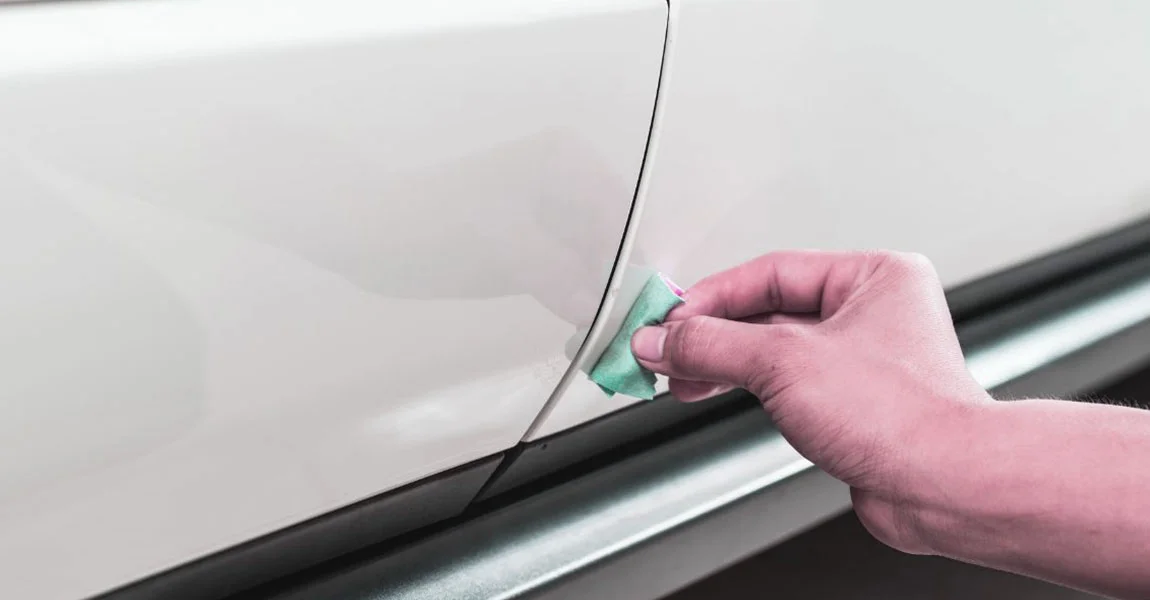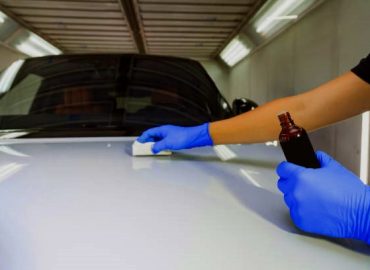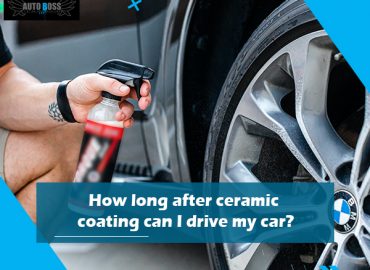In recent years, automotive enthusiasts and car owners have been raving about a revolutionary product. Ceramic car coatings promise to transform the way to protect and maintain vehicles. The coating has gained popularity for its ability to enhance a car’s appearance. It provides long-lasting protection. However, ceramic car coatings come with their own set of advantages and disadvantages. In this guide, we will guide you about ceramic car coatings. Here, we will explore its benefits and potential drawbacks. It will help you make an informed decision about whether they are right for your vehicle.
Advantages of Ceramic Car Coating

Ceramic coating comes with many advantages, like:
Exceptional Longevity
One of the primary advantages of ceramic car coatings is their exceptional longevity. Unlike traditional wax or sealants, a well-maintained ceramic car coating lasts for several years. Some high-quality ceramic coatings can even protect for up to five years or more. This long-lasting protection not only saves you time and effort. It also reduces the need for frequent reapplications.
Superior Protection
Ceramic car coating provides superior protection against a wide range of environmental contaminants. The coating creates a hydrophobic surface. It means it can repel water and prevent it from bonding with the paint. Its hydrophobic effect makes it difficult for dirt, dust, bird droppings, and other contaminants to adhere to the car’s surface. The quality makes it easier to clean and maintain the vehicle’s appearance.
Moreover, ceramic coatings provide excellent resistance to UV rays. These rays cause paint fading and oxidation over time. Ceramic coatings help preserve the vibrant colors of your car’s paintwork.
Enhanced Gloss and Depth
Ceramic car coatings can enhance the appearance of your vehicle’s paint. When applied, these coatings create a deep, glossy finish. It surpasses the shine achieved with traditional wax or sealants. The coating’s ability to fill in minor imperfections in the paint surface gives your car a mirror-like finish that is bound to turn heads on the road.
Chemical Resistance
Another notable advantage of ceramic car coatings is their resistance to chemical contaminants. These coatings can withstand exposure to acidic substances such as tree sap, bird droppings, and bug splatter. It can etch into and damage traditional paint finishes. This chemical resistance helps maintain the pristine condition of your car’s paint over time.
Reduced Maintenance
Ceramic car coatings make routine maintenance easier. Its hydrophobic properties and dirt-repelling abilities make car surfaces stain-resistant. Washing your car becomes a breeze as water beads up and rolls off the surface. These water droplets take contaminants with them. It can reduce the need for wax and polishing. Coating can save time and effort spent on car care.
Scratch Resistance
Ceramic car coating is not scratch-proof. It offers a higher level of scratch resistance compared to unprotected paint. It can guard against minor scratches and swirl marks that can occur during routine washing and maintenance. However, it’s important to note that ceramic coating is not a substitute for proper paint protection films.
High Heat Resistance
The ceramic coating exhibits high heat resistance. It can be particularly beneficial in hot climates. The coating helps protect your car’s paint from the damaging effects of extreme heat. The effects include paint fading and oxidation.
Disadvantages of Ceramic Car Coating
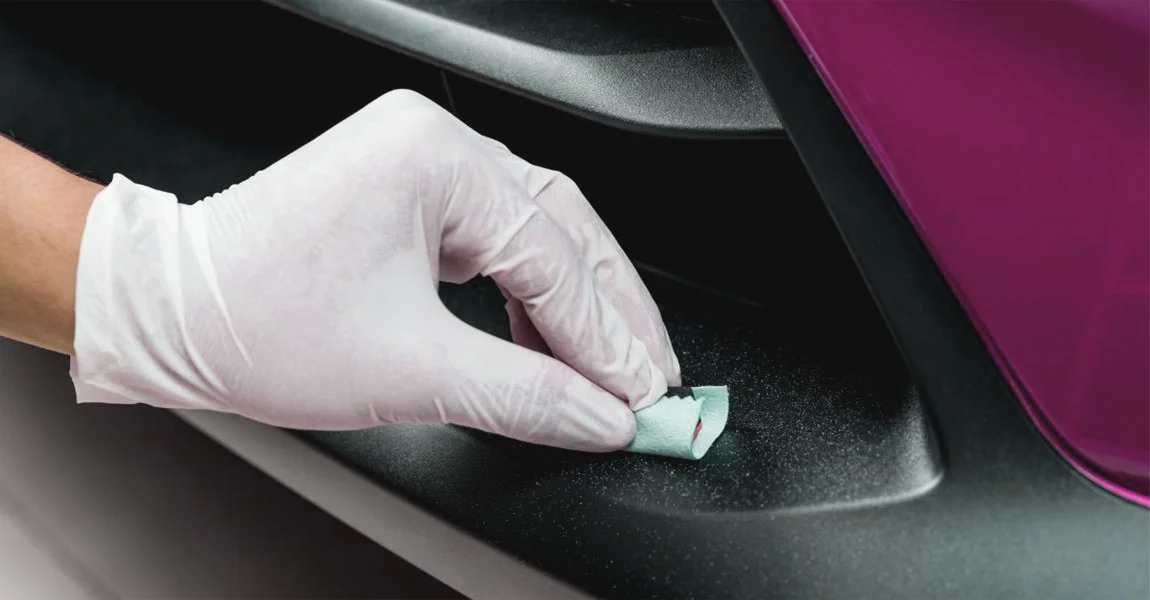
Here are some of the disadvantages of ceramic coating:
Cost
One of the most significant drawbacks of ceramic car coatings is their cost. High-quality ceramic coatings come with a large price tag. It may not be affordable for all car owners. The cost includes not only the product itself but also the labor involved in the application process. We recommend a professional installation to achieve the best results.
Professional Application Required
Some car enthusiasts may choose to apply ceramic coatings themselves. However, achieving optimal results requires professional installation. Improper application can lead to uneven coverage, streaks, and other issues. These imperfections may affect the coating’s performance. Professional installation adds to the cost of using ceramic coatings.
Time-Consuming Application
The application of ceramic coatings is a meticulous process. It demands time and patience. Unlike waxing, ceramic coatings need thorough preparation and careful application. It is necessary to ensure even coverage and proper bonding to the paint. This time-consuming process may deter some car owners.
Limited DIY Application
It is possible to find DIY ceramic coating kits on the market. But they often lack the same level of durability and performance. At the same time, professionally applied coating kits are durable. DIY kits may also need a steep learning curve and precise attention to detail. It makes them less accessible for the average car owner.
Not a Permanent Solution
Despite their exceptional longevity, ceramic coatings are not permanent solutions for paint protection. Over time, the coating will degrade, and its effectiveness will diminish. Regular maintenance and potential reapplications are necessary to keep the coating performing at its best.
Limited Damage Repair
While ceramic car coating offers some scratch resistance, it is not a guaranteed solution for deep scratches or paint damage. In the event of large damage, you will need to remove the coating and repair or recoat the affected area. This process can be costly and time-consuming.
Initial Effort Required
You must prepare your car before applying a ceramic coating. Car preparation involves thorough washing and decontamination. In some cases, you need paint correction to remove imperfections. This initial effort can be time-consuming. It also requires professional help, further adding to the cost.
Conclusion
Ceramic car coatings have revolutionized the way you protect and maintain your vehicles. It offers many advantages, like exceptional longevity, superior protection, enhanced aesthetics, and reduced maintenance. These coatings provide a hydrophobic barrier. It repels water and contaminants, making car care more manageable. However, they come with some notable disadvantages. Disadvantages include the cost of product and professional application and time-consuming installation. It also needs regular maintenance and potential reapplications.
You must consider budget, commitment to car care and paint protection before deciding to invest in a ceramic car coating. At the same time, ceramic coatings provide outstanding benefits for those willing to invest. It is not suitable for everyone. It’s important to weigh the pros and cons and consult with a professional detailer. Proper consultation helps you determine if a ceramic coating is the right choice for your vehicle.

